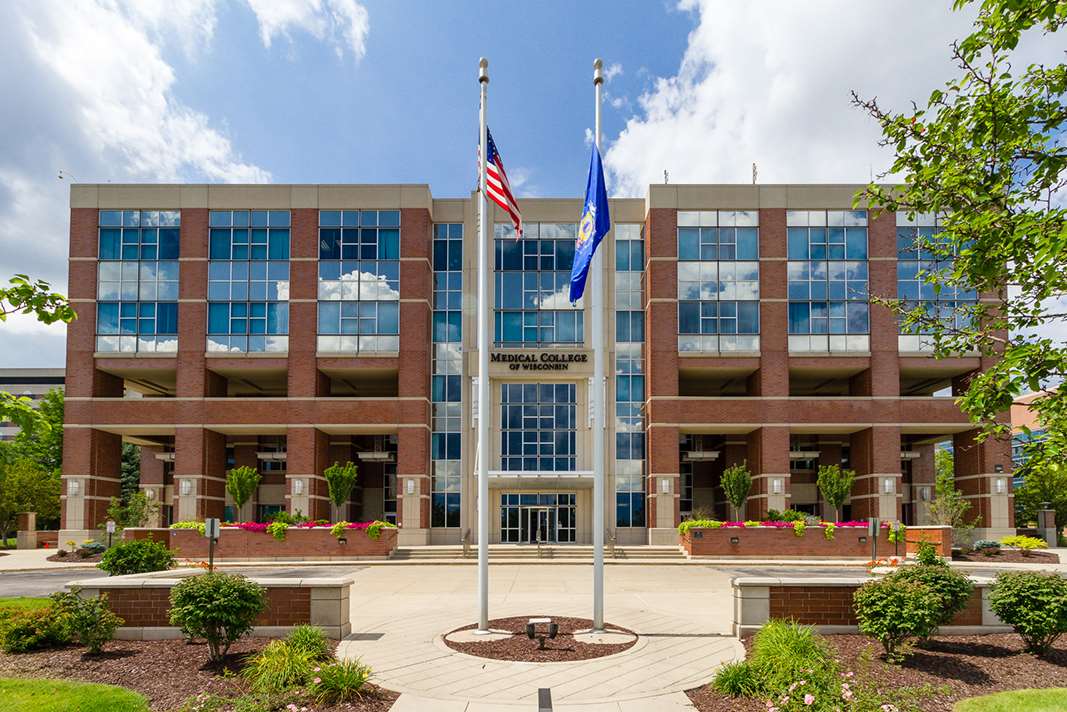Cardiovascular Center Appoints Postdoctoral Fellow to T32 Training Program
Pablo Nakagawa received his Master of Science in clinical biochemistry and biotechnology at the University of Buenos Aires in 2008.
Milwaukee, April 30, 2019 – The Cardiovascular Center at the Medical College of Wisconsin (MCW) has appointed Pablo Nakagawa, PhD as a postdoctoral trainee in the Cardiovascular Center’s T32 postdoctoral training program sponsored by the National Institutes of Health.
Dr. Nakagawa received his Master of Science in clinical biochemistry and biotechnology at the University of Buenos Aires in 2008. He received his doctorate in physiology in 2014 in the laboratory Oscar Carretero, MD, a senior staff scientist in the Division of Hypertension and Vascular Research at Henry Ford Health Systems in Detroit, Mich.
His primary mentor is Curt Sigmund, PhD, the James J. Smith & Catherine Welsch Smith Professor of Physiology, chair of physiology, and associate director of the Cardiovascular Center at MCW, and member of the Cardiovascular Center’s Hypertension Signature Program. With expertise from his doctoral studies in the renin-angiotensin system, Dr. Nakagawa’s postdoctoral training will expand scientific knowledge about the treatment of high blood pressure by understanding how the brain renin-angiotensin system regulates cardiovascular and metabolic function using a unique mouse model developed in Dr. Sigmund’s laboratory.
“I am confident that my training at the Medical College of Wisconsin will provide me with an outstanding environment to develop cutting-edge research skills required to work at the front line of modern cellular and molecular physiology,” Dr. Nakagawa said.
Building on excellence in cardiovascular research, the Cardiovascular Center’s T32 postdoctoral training program, “Training in Signature Transdisciplinary Cardiovascular Sciences,” is funded by a $1.6 million grant from the National Heart, Lung, and Blood Institute that provides support for two new postdoctoral training slots each year. The grant provides up to three years of training for appointed postdoctoral fellows in the Cardiovascular Center with an MD, PhD, PharmD, or DO degree.
The ultimate goal of this training program is to train the next generation of cardiovascular scientists, including underrepresented minorities, by incorporating broad-based, personalized, supportive and rigorous training opportunities.
Dr. Nakagawa is an underrepresented minority in science and joins three other postdoctoral fellows in the Cardiovascular Center’s T32 postdoctoral training program, Moua Yang, PhD, Jennifer Stancill, PhD, and Christine Klemens, PhD.
Ivor Benjamin, MD, professor of medicine and director of the Cardiovascular Center at MCW and David Gutterman, MD, Northwestern Mutual Professor of Cardiology and senior associate director of the Cardiovascular Center at MCW, are co-directors. Complementary support for trainees is provided by a grant given to the Cardiovascular Center by the A. O. Smith Foundation for the A. O. Smith Fellowship Scholars Program, a program designed to support talented cardiovascular researchers and physicians to overcome the barriers that exist in launching and sustaining a successful research career.
About the Medical College of Wisconsin
With a history dating back to 1893, The Medical College of Wisconsin is dedicated to leadership and excellence in education, patient care, research and community engagement. More than 1,400 students are enrolled in MCW’s medical school and graduate school programs in Milwaukee, Green Bay, and Central Wisconsin. MCW’s School of Pharmacy opened in 2017. A major national research center, MCW is the largest research institution in the Milwaukee metro area and second largest in Wisconsin. In FY2016, faculty received more than $184 million in external support for research, teaching, training and related purposes. This total includes highly competitive research and training awards from the National Institutes of Health (NIH). Annually, MCW faculty direct or collaborate on more than 3,100 research studies, including clinical trials. Additionally, more than 1,500 physicians provide care in virtually every specialty of medicine for more than 525,000 patients annually.
About the Cardiovascular Center at the Medical College of Wisconsin
The Cardiovascular Center, founded in 1992 at the Medical College of Wisconsin, serves more than 150 members from 26 departments and institutes on the Milwaukee Regional Medical Campus and surrounding community as it fulfills its mission to improve cardiovascular health in southeast Wisconsin and beyond through cutting-edge research, cost-efficient and high-quality healthcare delivery, rigorous training of the next generation of diverse cardiovascular scientists, and engaging the community to eliminate disparities in health outcomes. Directed by Ivor Benjamin, MD, over 32,000 square feet of space is dedicated to the center’s laboratories, offices, conference rooms, equipment cores and staff who promote its mission by maintenance of core resources, acquisition and distribution of funds for meritorious cardiovascular research, education of its members, trainees and staff and interaction with the community to understand its needs and alleviate the burden of disease in the heart and blood vessels.
NOTE: This press release was submitted to Urban Milwaukee and was not written by an Urban Milwaukee writer. While it is believed to be reliable, Urban Milwaukee does not guarantee its accuracy or completeness.
Mentioned in This Press Release
Recent Press Releases by Medical College of Wisconsin
Midwests Only Holistic Brain Injury Treatment Program for Military Veterans and First Responders Adds Staff, Space Due to Rapid Growth
Dec 8th, 2025 by Medical College of WisconsinThe BRAVE program outgrows its initial space in less than two years.
Audaxity Bike Ride Raises More Than $1 Million to Accelerate Cancer Research at the Medical College of Wisconsin Cancer Center
Nov 13th, 2025 by Medical College of WisconsinFunds from the inaugural community ride will help turn discoveries into new cancer treatments, train future physician-scientists, and expand community-driven research efforts.























